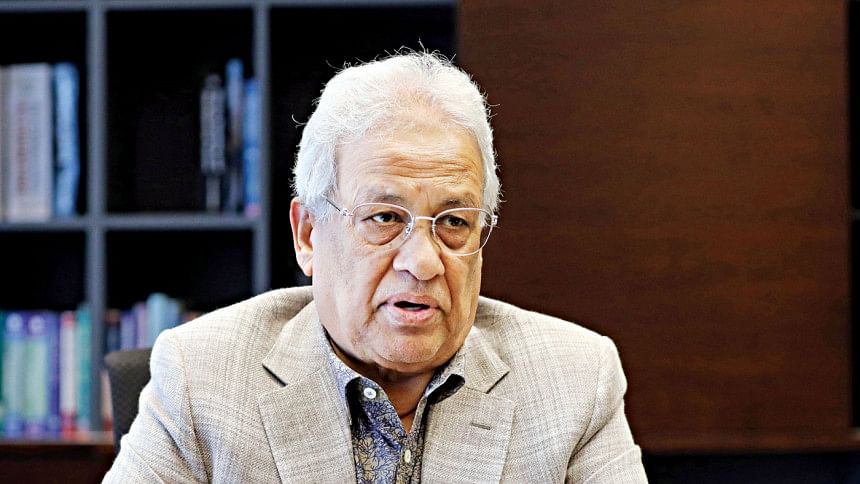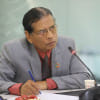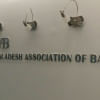Bank owners’ forum was useless during AL time

The Bangladesh Association of Banks (BAB), the private bank owners' forum, will work with the central bank governor and the finance adviser to rejuvenate the banking sector, weakened under 15 years of Awami League rule, said its new chairman Abdul Hai Sarker.
The BAB's main job is to safeguard the banks' interests during the making and adjustment of government policies. But the forum did not play its due role in the last 15 to 16 years despite being a supreme body in the financial sector, he told The Daily Star in an interview recently.
"But BAB was a useless association in the last 16 years -- it was used for only collecting money from banks," said Sarker, who was elected the chairman of the forum on September 9.
Sarker, also the chairman of Dhaka Bank, succeeded Sheikh Hasina's close associate Nazrul Islam Mazumder, who held the position for 17 years.
Mazumder, who is currently in jail in a murder case during the mass uprising, did not care about the association during his tenure, according to Sarker.
"He used to ignore others' opinions while taking major decisions," he said, adding that the newly-elected executive committee wants to update and make rearrangements in the association.
The BAB will study how the banking sector is operating in the neighbouring countries and try to incorporate the best practices.
"We will work with the finance adviser and the central bank governor to restore the banking sector's strength," he said, adding that a secretariat will be formed in the BAB office to carry out the works.
Sarker requested the Bangladesh Bank, the Financial Institutions Division under the finance ministry and the Bangladesh Securities and Exchange Commission to involve the BAB in policymaking and reforms.
He criticised the previous government for giving banking licences on political consideration, which overburdened the sector with so many banks. At present, there are 61 banks.
Asked about the record volume of defaulted loans in the banking sector, Sarker pinned the blame on faulty rules and regulations of the previous government.
At the end of September, defaulted loans hit an all-time high of Tk 284,977 crore, which is 16.9 percent of the total disbursed loans, according to data from the BB.
About 80 percent of defaulters are not willing to repay despite having the ability to clear the loans, according to Sarker.
More than 15 major defaulters took out Tk 20,000 crore to Tk 30,000 crore each from banks before fleeing the country, he said.
"When the banks go to auction their mortgaged assets, these defaulters send their representatives to the court, and the High Court also takes their words into consideration. We can't recover the money when the court imposes a stay order on the default status of the client."
But fugitive defaulters should not be allowed to enjoy such legal rights.
"We must immediately put an end to such a culture," he said, while demanding that the defaulters return to the country and attend court hearings to protect their property.
The rules and regulations in the banking sector will have to be strengthened and the scope to get a stay order on the default status repeatedly must be stopped.
Besides, the existing rules and regulations were not implemented, he said, adding that if the government can enforce the laws, the situation should look up.
The authorities will have to establish more money loan courts (Artho Rin Adalat) and strengthen them to clear the logjam of cases in the financial sector and recover the money from the defaulters.
The banking sector has lost customers' trust because of some banks and bringing back the depositors' trust is very important, he said.
"The crisis-hit banks cannot be saved just with liquidity support, but restoring the depositors' confidence."
Sarker, who is also the chairman and chief executive officer of the textile manufacturer Purbani Group, expressed concern over the high interest rates on loans.
Product manufacturing has become costlier because of the high interest rate, which has increased because of several temporary policy measures by the central bank to rein in skyrocketing inflation, he said.

 For all latest news, follow The Daily Star's Google News channel.
For all latest news, follow The Daily Star's Google News channel. 







Comments